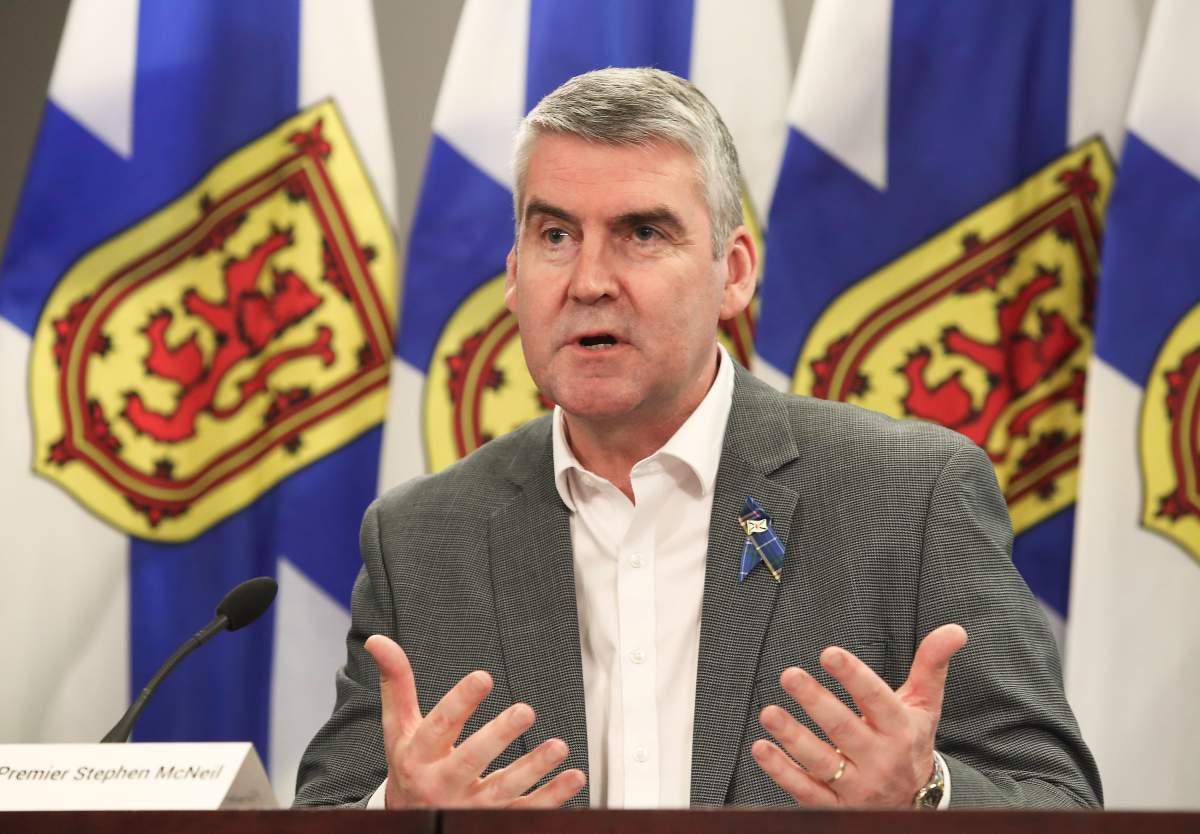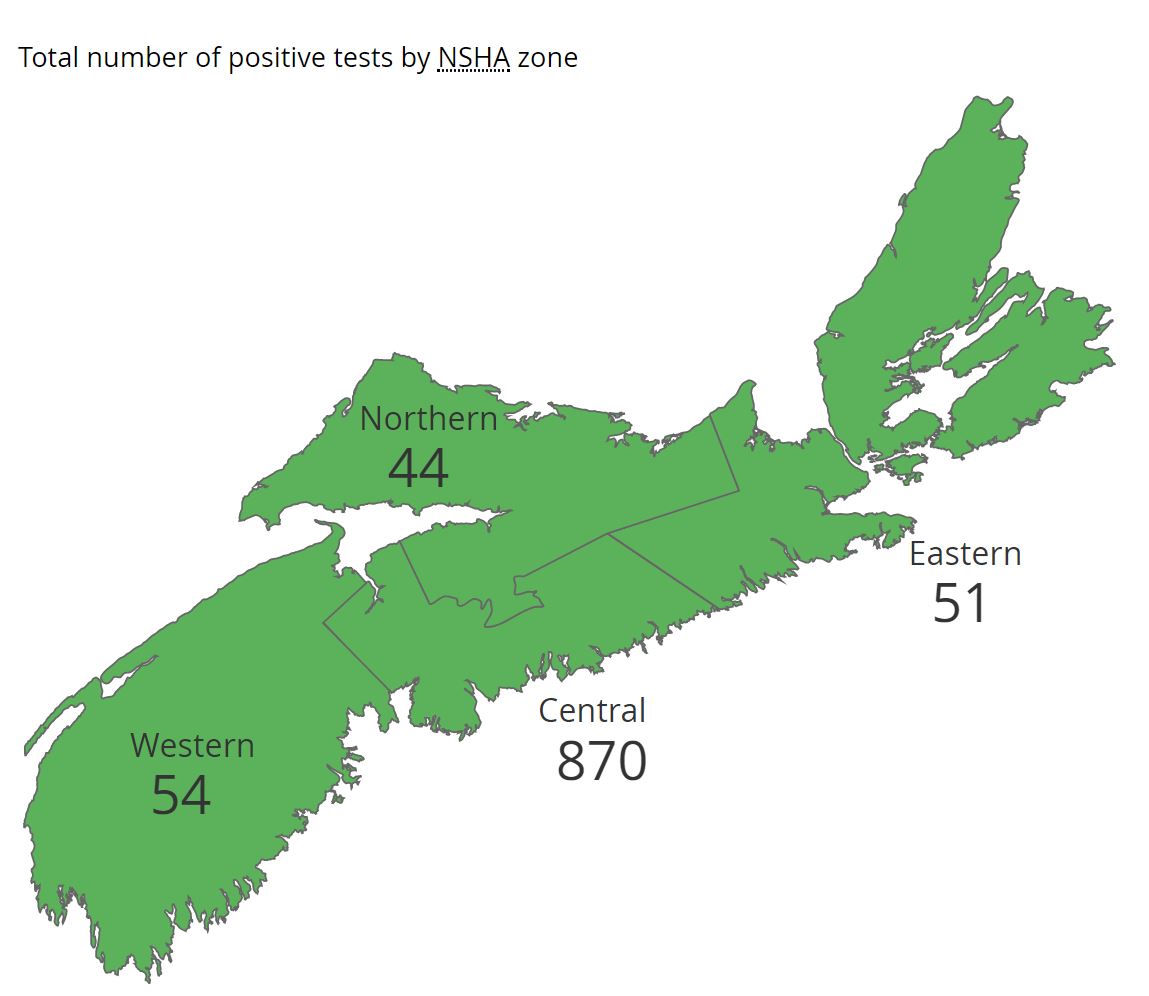Nova Scotia is reporting one more death connected to the novel coronavirus at Northwood Manor in Halifax and only one new case across the province.

There have now been a total of 42 deaths connected to COVID-19 at Northwood and 48 across the province.
“My thoughts are with the family and friends of this individual,” said Premier Stephen McNeil in a statement. “All Nova Scotians are asked to do everything you can to continue to slow the spread of this virus in our province.”
READ MORE: Nova Scotia schools to stay closed for remainder of the academic year
There are currently 156 active cases of COVID-19 among Northwood residents 18 staff members who have tested positive.
“One other facility has one staff member with an active case of COVID-19 and another facility has one resident with an active case,” the province said in a news release Monday.
As of Monday, Nova Scotia has 1,019 confirmed cases of COVID-19. Of the 1,019 cases, 204 remain active. There were 222 active cases as of Sunday.
The one new case was identified in Nova Scotia’s northern health zone.
Here is a breakdown of where cases have been identified in Nova Scotia by health zone:

Get weekly health news
- Central: 870
- Western: 54
- Northern: 44
- Eastern: 51
Sixty-two per cent of the cases involve female patients while 38 per cent are male.
The QEII Health Sciences Centre’s microbiology lab completed 291 Nova Scotia tests on Sunday, according to the province.

Nova Scotia Premier Stephen McNeil and chief public health officer Dr. Robert Strang will not be holding a COVID-19 briefing on Monday.
Questions about COVID-19? Here are some things you need to know:
Health officials caution against all international travel. Returning travellers are legally obligated to self-isolate for 14 days, beginning March 26, in case they develop symptoms and to prevent spreading the virus to others. Some provinces and territories have also implemented additional recommendations or enforcement measures to ensure those returning to the area self-isolate.
Symptoms can include fever, cough and difficulty breathing — very similar to a cold or flu. Some people can develop a more severe illness. People most at risk of this include older adults and people with severe chronic medical conditions like heart, lung or kidney disease. If you develop symptoms, contact public health authorities.
To prevent the virus from spreading, experts recommend frequent handwashing and coughing into your sleeve. They also recommend minimizing contact with others, staying home as much as possible and maintaining a distance of two metres from other people if you go out.
For full COVID-19 coverage from Global News, click here.










Comments